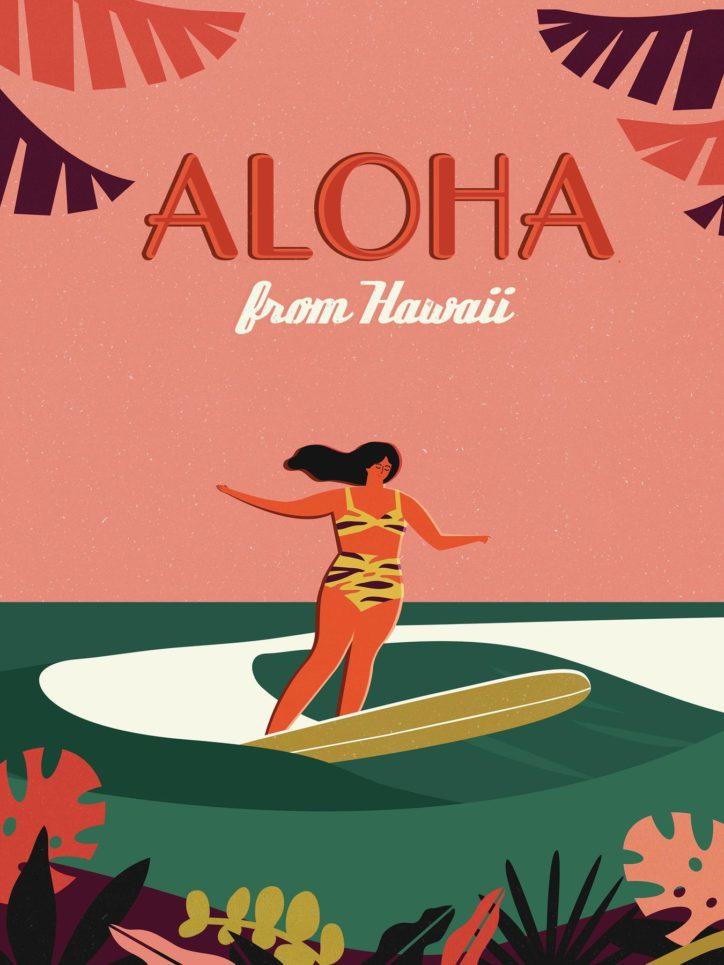

Due to the fact that hawaiians are naturally welcoming, it leaves room for foreigners to feel like they can do as they please. When in reality that word means so much more.

As tourists we hear Aloha and we picture a giant welcoming party.

If I have learned one thing about this book is that Hawaiins are naturally very welcoming. For example the words “ Aloha”, which is the most recognized word used to promote and market Hawaii. I found it very interesting that the book highlighted certain words that “captured the tensions of this book”. I personally didn’t find any weaknesses due to the honesty they used when describing how life really has been for some people. This book has many strengths because they touch on the past, current and future of Hawaii. Editors and contributors as stated are “committed to the project of decolonizing Hawaii and restoring and strengthening the ea of the people of hawaii”. Finally part four, New Mappings, they explore beyond the big eight island we foreigners grow to learn. In part three, Tours of Transformation, you will find insight on what contributors and guides are doing to give people a better understanding and potentially form a connection with the places they are learning from. In part two, Decolonial projects and Representation, provide information on the contributors restoration practices and projects “across the archipelago”. When you read part one, Storied Places, you will learn about stories behind landmarks you might happen to see during your visit. The book is broken down into three different parts Wahi Pana/ Storied Places, Hana Lima/ Decolonial Projects and Representations, and Huaka’i/ Tours for Transformation. They give the reader a different perspective of Hawaii than you would normally read from other tour books. Detours offers its readers an insider point of view to many interesting places one as a tourist would want to learn from. My first impression going through the book was definitely not my final impression. Kāwika Tengan, Stephanie Nohelani Teves, Stan Tomita, Mehana Blaich Vaughan, Wendy Mapuana Waipā, Julie Warech

Kawailanaokeawaiki Saffery, Dean Itsuji Saranillio, Noenoe K. Kapā‘anaokalāokeola Nākoa Oliveira, Jamaica Heolimelekalani Osorio, No‘eau Peralto, No‘u Revilla, Kalaniua Ritte, Maya L. Kalawai‘a Moore, Summer Kaimalia Mullins-Ibrahim, Jordan Muratsuchi, Hanohano Naehu, Malia Nobrega-Olivera, Katrina-Ann R. Lyons, David Uahikeaikalei‘ohu Maile, Brandy Nālani McDougall, Davianna Pōmaika‘i McGregor, Laurel Mei-Singh, P. Trisha Lagaso Goldberg, Kapulani Landgraf, Laura E. Kekoolani-Raymond, Kekuewa Kikiloi, William Kinney, Francesca Koethe, Karen K. Kahanu, Haley Kailiehu, Kyle Kajihiro, Halena Kapuni-Reynolds, Terrilee N. Furuto, Sonny Ganaden, Cheryl Geslani, Vernadette Vicuña Gonzalez, Noelani Goodyear-Ka‘ōpua, Tina Grandinetti, Craig Howes, Aurora Kagawa-Viviani, Noelle M. Joe Estores, Nicholas Kawelakai Farrant, Jessica Ka‘ui Fu, Candace Fujikane, Linda H. Chang, Lianne Marie Leda Charlie, Greg Chun, Joy Lehuanani Enomoto, S. Aikau, Malia Akutagawa, Adele Balderston, Kamanamaikalani Beamer, Ellen-Rae Cachola, Emily Cadiz, Iokepa Casumbal-Salazar, David A. The essays, stories, artworks, maps, and tour itineraries in Detours create decolonial narratives in ways that will forever change how readers think about and move throughout Hawai‘i. In this brilliant reinvention of the travel guide, artists, activists, and scholars redirect readers from the fantasy of Hawai‘i as a tropical paradise and tourist destination toward a multilayered and holistic engagement with Hawai‘i's culture and complex history. While Hawai‘i is indeed beautiful, Native Hawaiians struggle with the problems brought about by colonialism, military occupation, tourism, food insecurity, high costs of living, and climate change. Many people first encounter Hawai‘i through the imagination-a postcard picture of hula girls, lu‘aus, and plenty of sun, surf, and sea.


 0 kommentar(er)
0 kommentar(er)
